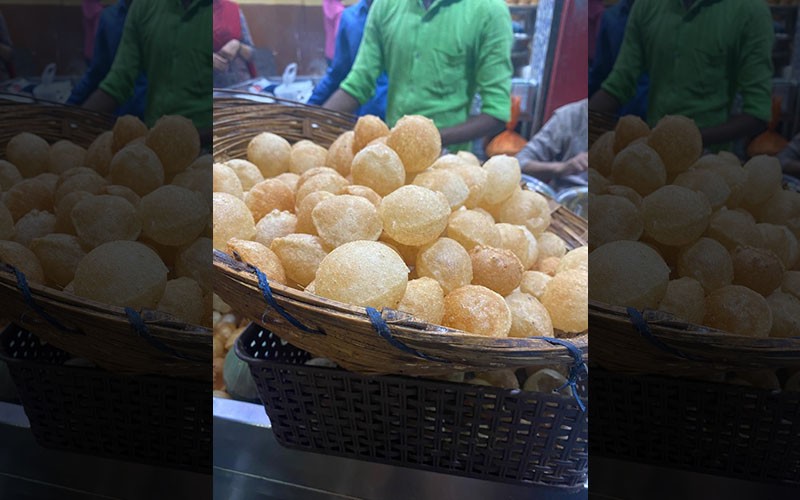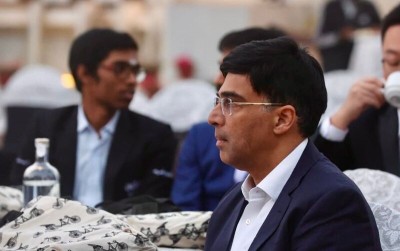
Indian Pani Puri vendor receives GST notice after Rs 40 lakh transaction; netizens mull 'career change'
Chennai: A GST notice sent to a Pani Puri vendor in Tamil Nadu has gone viral on social media, amusing many and prompting some to consider changing careers, media reports said.
The notice, which relates to Rs 40 lakh received by the vendor in 2023-24, has triggered widespread conversation, especially on Reddit.
"Based on the reports received from RazorPay and Phonepe, you have received UPI payments for outward supply of goods/services, and the payments received for the years 2021-22, 2022-23 and 2023-24 are below," reads the summons, showing Rs 40 lakh received in 2023-24.
The summons, dated December 17, 2024, was issued under Section 70 of the Tamil Nadu Goods and Service Tax Act and the Central GST Act, directing the vendor to appear in person and submit the necessary documents.
Pani puri wala makes 40L per year and gets an income tax notice 🤑🤑 pic.twitter.com/yotdWohZG6
— Jagdish Chaturvedi (@DrJagdishChatur) January 2, 2025
These street food sellers, who have begun using platforms like RazorPay and PhonePe for digital transactions, have now crossed the Rs 40 lakh annual threshold, triggering GST notices.
While the news itself is significant, it's the creative and witty reactions on social media that have caught attention.
Users are jokingly imagining these vendors as future corporate giants, with some even suggesting "export opportunities" and "foreign collaborations."
This amusing response highlights the swift impact of digital payments on small businesses and their increasing integration into the formal economy.
In an unexpected twist, Pani Puri vendors across India are now facing a new controversy involving Goods and Services Tax notices.
Historically part of the informal sector, these street vendors are receiving official tax notices after shifting from cash-based transactions to digital ones.
With the growing popularity of digital payment platforms such as PhonePe, RazorPay, and UPI, many small vendors have unwittingly crossed the Rs 40 lakh revenue threshold that necessitates GST registration.
What began as a routine tax notice has quickly transformed into a viral sensation.
The idea of a Pani Puri vendor becoming a business mogul or requiring GST registration has sparked a wave of humorous comments and memes.
This reflects the public's increasing fascination with small-scale businesses making the transition into the formal economy.
The spread of memes, jokes about "export units," "foreign collaborations," and even light-hearted comments about Pani Puri becoming a global export, showcases the power of social media to turn a simple issue like tax compliance into a source of entertainment.
While some are offering practical advice about GST registration, others humorously suggest using multiple QR codes to bypass the system or even changing careers to avoid the tax burden.
This humorous reaction touches on a larger issue: as digital payments continue to expand, small businesses are being integrated into the formal tax system. This raises important questions about the future of India's informal sector in the rapidly evolving digital economy.
In India, street vendors are generally exempt from GST or income tax unless their turnover exceeds a specific threshold. For GST, this threshold is set at Rs 40 lakh.
This means that vendors, like those selling Pani Puri on a small scale, may not need to pay GST if their earnings are below this amount.
However, as digital payments gain traction, even small transactions are adding up quickly, pushing these businesses into the taxable category.
Similarly, individuals earning more than Rs 2.5 lakh annually, and under 60 years old, are subject to income tax.
Most street vendors, especially those dealing in cash or with minimal digital transactions, stay below this income threshold and are not required to pay taxes.
Vendors whose earnings exceed Rs 40 lakh annually or who meet the income tax threshold are obligated to pay GST and income tax, as applicable.
This change is becoming more relevant with the increased use of digital payments and enhanced monitoring by authorities.
How digital payments are integrating street vendors into the GST system
Many street vendors have traditionally relied on cash transactions, which are harder to trace and generally exempt from tax filings.
Cash payments allowed small businesses to remain off the tax authorities' radar, meaning vendors could often operate without the need to pay GST or income tax.
However, as consumers increasingly opt for digital platforms like PhonePe and RazorPay, the once prevalent cash-based economy is shrinking.
Authorities are now able to track even the smallest transactions, leading to more tax notices for street vendors who may not realize they have crossed the GST registration threshold.
This shift is pushing vendors, many of whom were previously unaware of the tax implications, into the formal tax system.
Support Our Journalism
We cannot do without you.. your contribution supports unbiased journalism
IBNS is not driven by any ism- not wokeism, not racism, not skewed secularism, not hyper right-wing or left liberal ideals, nor by any hardline religious beliefs or hyper nationalism. We want to serve you good old objective news, as they are. We do not judge or preach. We let people decide for themselves. We only try to present factual and well-sourced news.







